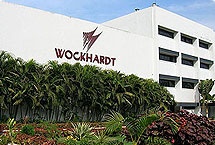FDA hits Wockhardt again; this time over Illinois plant
04 Jun 2014
India's generic drug maker Wockhardt Ltd again faces strictures from the US Food & Drug Administration – this time not over its Indian plants but one in Chicago in Illinois.
 The FDA has cited the Illinois plant for testing lapses. Drugs made at two of Wockhardt's Indian plants have already been banned from exporting to the US, the largest market for Indian generics makers.
The FDA has cited the Illinois plant for testing lapses. Drugs made at two of Wockhardt's Indian plants have already been banned from exporting to the US, the largest market for Indian generics makers.
The FDA issued a Form 483 listing possible violations of the Food Drug and Cosmetic Act after inspecting Wochardt's drug making facility in Morton Grove, Illinois, over 17 days between January and March, according to a document on the agency's website. This is similar to the problems cited at its Indian plants.
The Form 483, issued on 26 March and containing 12 observations, said the plant's quality unit doesn't have documented procedures and some systems weren't followed.
The regulator's findings, based on an inspection of the Chicago facility between 22 January and 26 March, were posted on the FDA website on 30 May.
According to the US healthcare regulator, Wockhardt was lax in fully complying with the responsibilities and procedures applicable to the quality control department at its Chicago-based Morton Grove production facility.
"Your firm's quality unit is not fully monitoring quality systems designed to assure the safety and quality of drug products manufactured by your firm," the FDA investigator said in a letter to Morton Grove that was posted on the regulator's website.
The FDA website also found that appropriate controls were not exercised over computers or related systems at the Chicago plant, potentially allowing any user to change or delete data stored on them.
There were also no records related to training of two of the five employees reported to have received training. USFDA rules prescribe "documented training" in the so-called current good manufacturing practices, the website noted.
Also, the FDA's investigator observed an employee entering the manufacturing area of the plant without washing and sanitising his hands.
Wockhardt also failed to make available manufacturing and quality control procedure followed at the facility in writing and fully following these at the unit, according to USFDA.
The facility is Wockhardt's sole manufacturing site in the US and production from here accounts for around 50 per cent of the drugmaker's US revenues. The unit is also key to Wockhardt's overall sales as the US market accounted for 45 per cent to the company's overall turnover in 2013-14 of Rs2,173.5 crore.
Its US business dropped 26 per cent in the year ended March 2014 following the import restriction on the two other factories. The contribution from US sales dropped to 45 per cent of total revenue from 51 per cent the year before.
Apart from Wockhardt, four factories of India's Ranbaxy Laboratories Ltd. are banned from exporting to the US, and the FDA this year put import restrictions on a Sun Pharmaceutical Industries plant.
The FDA said the Wockhardt plant hasn't established appropriate procedures designed to ''assure that products conform to appropriate standards of identity, strength, quality and purity''.
Similar product testing irregularities were also cited in two warning letters issued to Wockhardt's banned facilities at Chikalthana and Waluj in Aurangabad, India, the document said, leading the agency to believe that the company's quality unit is not fully monitoring systems at its plants.


















